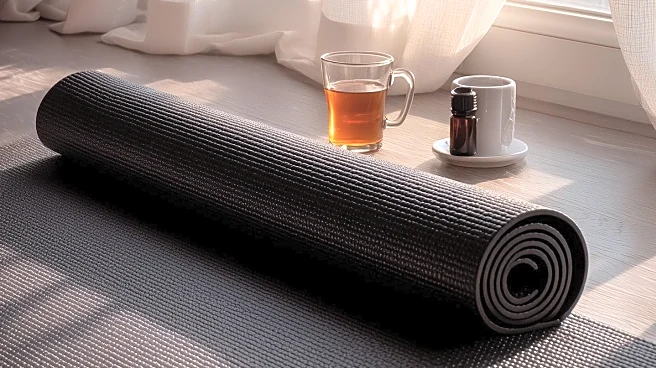What's Happening?
Entrepreneur Bryan Johnson has shared a detailed account of his 17-step morning routine aimed at promoting longevity and wellness. Starting at 4:30 am, Johnson's regimen includes activities such as red light therapy, sauna sessions with ice packs, and various health supplements. He claims these practices help him maintain optimal health and slow down aging. Johnson's routine, which he describes in a YouTube video, is designed to support strength, cardio, balance, and flexibility. Despite the extensive nature of his routine, questions remain about the scientific validity of some practices, such as the use of ice packs and shockwave therapy.
Why It's Important?
Johnson's routine highlights the growing trend of extreme wellness practices among entrepreneurs and influencers. While some elements of his routine, like exercise and time-restricted eating, are supported by scientific evidence, others remain experimental. This raises concerns about the influence of such figures on public perceptions of health and wellness. The routine reflects broader societal interests in longevity and biohacking, potentially impacting consumer behavior and the wellness industry. However, the lack of robust scientific backing for some practices may lead to skepticism and debate about their efficacy.
What's Next?
As Johnson continues to promote his wellness practices, it is likely that more individuals will explore similar routines, potentially leading to increased demand for wellness products and services. The scientific community may also respond by conducting more research to validate or refute the claims made by Johnson and others in the wellness space. Additionally, regulatory bodies might scrutinize the marketing of wellness products that lack scientific support, ensuring consumer protection.
Beyond the Headlines
Johnson's routine underscores ethical considerations in the wellness industry, particularly regarding the promotion of unproven practices. It raises questions about the responsibility of influencers to provide accurate information and the potential consequences of promoting experimental health regimens. The trend also reflects cultural shifts towards prioritizing personal health and longevity, influencing societal norms and expectations around wellness.









